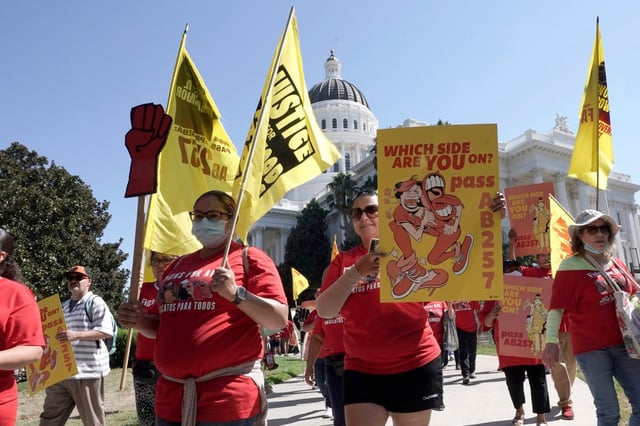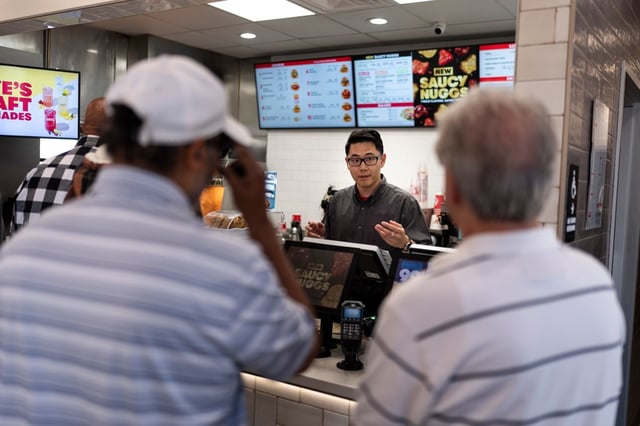Overview
- California's $20 minimum wage for fast food workers, implemented in April 2024, continues to spark debate over its economic consequences.
- Proponents cite studies from UC Berkeley, Harvard, and UC San Francisco claiming the wage hike increased pay by 18% without reducing employment significantly.
- Industry-backed research from Berkeley Research Group argues the wage increase has led to job reductions, shorter hours, higher prices, and increased automation in fast food franchises.
- Both sides rely on extrapolated data, as the Bureau of Labor Statistics does not collect specific figures for fast food chains impacted by the legislation.
- The Fast Food Council, created to oversee wages and working conditions, is now considering union proposals to raise the minimum wage beyond $20.

